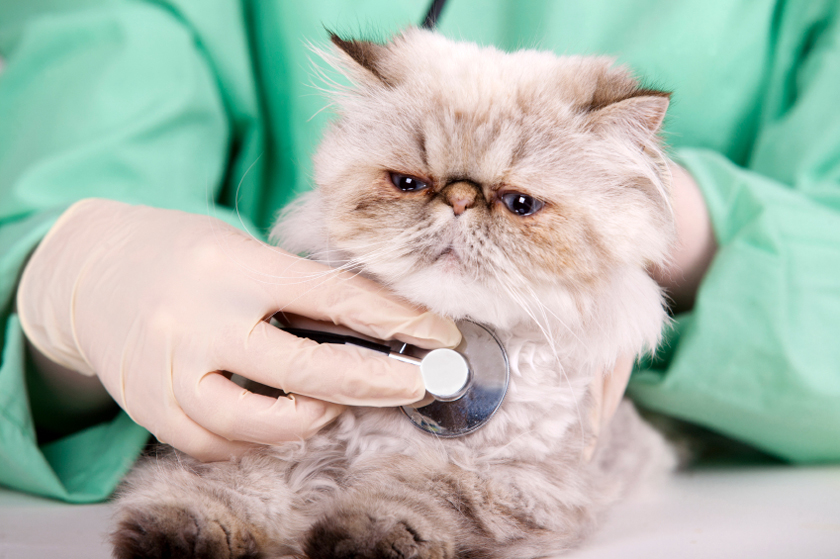Dr. Al Townshend
A Sarcoma is a general term used to describe a tumour of the flesh or the bone. An Injection Site Sarcoma is a tumour that arises just under the skin at the site where an injection has previously been given. They occur at the site where a cat was vaccinated for Rabies and/or Feline Leukemia, so they have been termed Feline Injection Site Sarcoma’s (FISS). While FISS is uncommon, like any malignant tumour, it can be devastating for the pet and their Guardian family.
The tumours can also occur in locations where a feline received a microchip, an injection of a long-acting antibiotic, long-acting steroid, lufenuron (an injectable flea control product called Program), and a reaction to nonabsorbable sutures left in the skin too long. It is thought that some cats may be genetically predisposed to developing injection site sarcomas.
In the 35 plus years that FISS has been studied, the specific reason these tumours develop at injection sites has not been determined. Certain types of vaccines and some specific ingredients in certain vaccines have all been incriminated, but no definitive answer has been found.
It is important to note that FISS are infrequent, and the risk of not vaccinating for certain diseases can far outweigh the risk of tumour development.
What are the signs?
A firm lump can develop any time, up to ten years after the injection. It is not unusual for a small area of inflammation to occur right after the injection that should go away within a few days. Persistence for greater than three months, if the mass increases in size over one month, or if the mass is larger than two centimeters in diameter, it is essential a veterinarian examine the area.
Diagnosis
To make a precise determination, the tissue needs to be examined by a veterinary pathology lab. There are several ways for a veterinarian to obtain a sample, including a fine needle aspirate, a surgical biopsy, or removal of the entire mass.
Additional procedures may be necessary to determine the extent of the tumour and whether it has already spread to other parts of the body.
Treatment
Generally, the tumours are very invasive and spread quickly. Early detection and surgical removal with wide margins is the best chance of stopping the spread. If all of the tumour tissue is not removed (even on a cellular level), there is the likelihood it will reoccur at the original site.
Radiation has been used before surgery to reduce the growth and after surgery to destroy any remaining tissue where complete removal is not possible.
Chemotherapy has been recommended in conjunction with surgery to reduce the risk of reoccurrence and spread, which does occur approximately 25% of the time.
Electrochemotherapy (ECT) is a local treatment for cancer using chemotherapy and electric pulse therapy, which increases the antitumour effect of the chemotherapy drugs.
Immunotherapy is the newest and most exciting area of investigation in treating many cancers, including FISS. There is ongoing research to understand the benefit certain potential immunotherapies may have in the treatment and control of cancer.
Developing an effective approach to every pet’s treatment requires working closely with the family veterinarian and, in some cases, a specialist to develop an effective strategy that achieves the best results.
Early detection is critical to the success in resolving this complicated issue. In this case, size does matter. The smaller the growth, and its location play a significant role in the outcome. Regular, hands-on examinations of pets are critical for the early detection of any abnormalities.
Prevention
While the exact cause is still unknown, and injections of substances other than vaccines have been incriminated, there does seem to be an increased risk for some cats with certain types of vaccines. Veterinarians and specific veterinary organizations have developed information and protocols to reduce the risk of FISS.
Updated information for veterinarians on where injections are best given has become an essential part of vaccination procedures. Many veterinarians are placing vaccines in sites that would make tumor removal easier should a FISS occur.
Vaccinations are an essential part of protecting a pet, and in the case of Rabies, protecting the Guardian. Over vaccination should be avoided. Working closely with the veterinarian is the best way to assure a long and happy life for every pet.
For more information on pet cancer, visit the Info Hub. Click Here

